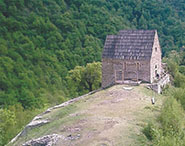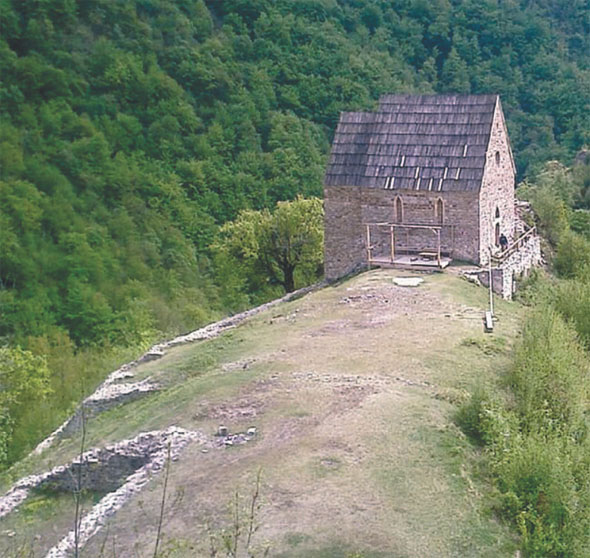History of Parliamentarism in BiH
Medieval Bosnia
In the Middle Ages, Bosnia was first mentioned as a small country situated primarily in the Upper basin of the river Bosnia. Initially, it existed as an area within stronger neighboring countries, becoming a semi-autonomous or sovereign country with its own governors (12th – 14th century) and finally, as of 1377, an independent kingdom with a considerably expanded territory.
(Monographs of the "Parliamentary Assembly of Bosnia and Herzegovina, the 2010 edition.)

Apart from its rulers, the national council, better known as Stanak, was a very important institution in the Bosnian medieval state. In source materials it is also referred to as zbor (gathering), sva Bosna (all Bosnia), sav rusag bosanski (not quite translatable), sometimes only as Bosna, as well as consilium, universale colloquium, collatio, adunacio, etc.
The term stanak is mentioned for the first time in the charter of the governor Tvrtko I Kotromanić in 1354. The Stanak was convened on an as-needed basis, usually by the ruler who chaired the sessions. At times when major crises faced the country, such as in the succession of rulers, the Stanak was convened by the landed high nobility. The Stanak was most often held at the location of the ruler’s palace: in Mile, Milodraž, Bobovac, Sutjeska or Jajce. Those entitled to attend the Stanak were noble estate – owners and peers of the realm, dobri Bošnjani (good Bosnians), dobri ljudi (good people) and gospoda rusaška (genlemen of Rusag) – in Latin and Italian, all these terms had the same meaning – barons of Bosnia.

The remains of the medieval royal city of Bobovac in the first half of the 15th century with restored chapel. Five tombs with the remains of Bosnian kings were found on the site of Bobovac.
The Bosnian council at that time was an assembly of nobility which, as a state institution and together with the ruler, decided on important state affairs. Its functions and competence encompassed the most important state matters, such as accession to the Bosnian throne, the coronation of Bosnian rulers, foreign policy, the sale and ceding of Bosnian state territory to neighboring countries, entering into and signing agreements with neighboring countries, and rendering decisions on war and peace, among others. Rulers would then issue charters based on the decisions of the council. The influence of the Stanak on the state affairs depended on the relative power held by the ruler and the nobility, respectively, which varied in medieval Bosnia.

